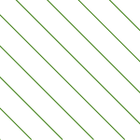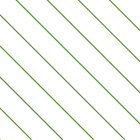A.Y. 2022/2023
_
You may see the available courses schedule on this Google Calendar
The Calendar will be updated as soon as the info is available.
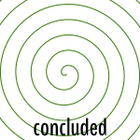
Deep natural language processing
Giovanni Paolini (Caltech and Amazon Web Services)
type: advanced courses area: intedisciplinary
period: 12 - 20 December hours: 12
schedule:
12 December h. 9-11 room: aula Vitali
13 December h. 16-18 room: aula VIII piano
14 December h. 9-11 room: aula Bombelli
15 December h. 9-11 room: aula Arzelà
16 December h. 11-13 room: aula Enriques
19 December h. 9-11 room: aula Bombelli
20 December h. 11-13 room: aula Arzelà
This course will cover advances in natural language processing (NLP) obtained over the past five years using deep learning. Topics will range from transformer architectures to prompt tuning and multimodal models, with an eye on current challenges in NLP and artificial intelligence.
UNIBO referent: Luca Moci
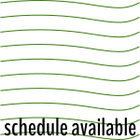
Applying ideas of mathematical logic to group theory and operator algebras
André Nies (University of Auckland)
type: fundamental courses area: MAT/01 MAT/02 MAT/03
period: September 2023
schedule:
September
‑ 6, h. 10-12, Seminario I
‑ 11, h. 15-17, Seminario I
‑ 13, h. 10-12, Aula G3, Dipartimento di Geologia
‑ 18, h. 15-17, Seminario II
‑ 20, h. 10-12, Seminario II
‑ 25, h. 15-17, Seminario II
‑ 27, h. 10-12, Seminario II
Abstract
The course will cover applications of logic to various mathematical areas. They will be discussed in four largely independent blocks, each consisting of 2 hours of lecturing and one hour of discussions and exercises.
1. First-order logic and group theory: We introduce the notion of a f.g. group to be QFA (quasi-finitely axiomatizable): the group can be uniquely described by a first-order sentence, among the finitely generated groups. We provide examples, and discuss recent work of the analogous notion for the class of profinite groups
2. Descriptive set theory and the isomorphism problem for Polish groups: We show that isomorphism of profinite groups is as complex as possible w.r.t. Borel reducibility, while isomorphism of oligomorphic groups is essentially countable.
3. Computabity and totally disconnected, locally compact (tdlc)groups: We initiate an algorithmic theory of tdlc groups, and discuss an example of a computably tdlc group with noncomputable scale function.
4. Continuous logic and the Connes embedding problem: We discuss an alternative method due to Goldbring and Hart, based on continuous logic, how a recent breakthrough result in quantum information theory can be used to refute a long-open conjecture on von Neumann algebras. This avoids the various equivalences to the CEP that were applied in the original refutation.
UNIBO referent: Martino Lupini
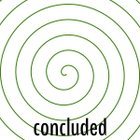
Introduzione all’analisi di Fourier sui gruppi finiti
Marta Morigi
type: advanced courses area: MAT/02
period: 13 – 28 March 2023 hours: 12
schedule: Mondays h. 9 - 11, Tuesdays h. 14-16 / 13, 20 and 27 March: aula Bombelli, 14 and 28 March: Seminario VIII piano, 21 March: Aula B. Levi Lab I floor.
According to the background of the audience, we will quickly revise or deal with representations of finite groups (Shur's Lemma, the Schur Orthogonality relations, the character table of a finite group). Then we will introduce Fourier Analysis on finite groups (Peter-Weyl Theorem, Plancharel Theorem, Fourier inversion, convolution properties of the Fourier Tranform). As an example, we will describe the character table of the affine group and the finite Heinsenberg group and sketch some applications to random number genators and statistics.
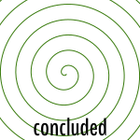
Topics in matroid theory and hyperplane arrangements
Tan Nhat Tran (Ruhr-Universität Bochum)
type: advanced courses area: MAT/02
period: 23 - 30 November + 15 - 22 December hours: 6 + 6
first part schedule: 23 November 11:00 - 13:00 a.m. room: aula Vitali / 28 November 2:00 - 4:00 p.m. room: VII piano / 30 November 11:00 - 13:00 a.m. room: aula Vitali
In the fist part of the course, prof. Tran will give an introduction to hyperplane arrangements and their polynomial invariants, as well as integral hyperplane arrangements and their quasipolynomial invariants, which provide the motivation for several constructions in matroid theory.
The second part of the course has been cancelled.
1)
A typical problem in enumerative combinatorics is to count the size of a set depending upon a positive integer q. Often the result is a polynomial in q (e.g., the chromatic polynomial of a graph),
and sometimes a quasi-polynomial. Generally speaking, a quasi-polynomial is a generalization of polynomials, of which the coefficients may not come from a ring but instead are periodic functions
with integral periods. Another way to think of a quasi-polynomial is that it is made of a bunch of polynomials, called the constituents. This lecture series aims at introducing the concept of
characteristic quasi-polynomials of integral hyperplane arrangements due to Kamiya-Takemura-Terao (2008), and exploring the related areas. In the simplest setting, when a finite set A of integral
vectors in Z^n is given, we may naturally associate to it an integral hyperplane arrangement A(R) inthe real vector space R^n. We may also consider its q-reduction for any positive integer q and get
an arrangement A(Z/qZ) of subgroups in the finite cyclic group (Z/qZ)^n. The central result in thetheory states that the cardinality of the complement of A(Z/qZ) is actually a quasi-polynomial in q.
This is called the characteristic quasi-polynomial of A as a result of the fact that its first constituentagrees with the characteristic polynomial of A(R).
UNIBO referent: Luca Moci
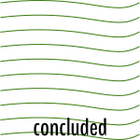
Compact hyperkahler manifolds
Giovanni Mongardi
type: fundamental courses area: MAT/03
period: 3 November – 22 December 2022 hours: 24 + 6
schedule: on Tuesdays and Thursdays from November 3rd to December 22nd / 2 to 4 p.m. / room: on Tuesdays at Aula Enriques and Thursdays at Seminario VIII piano
schedule changes: Thursday 24 November and Thursday 1 December h. 11-1 a.m. room: Seminario II - Tuesday 20 December h. 11-1 a.m. room: Seminario VIII piano
The course will introduce PhD students to the basics of the theory of Hyperkaehler varieties, and survey the known theory. The additional six hours will be intensive seminars from external experts, dealing on special subtopics, such as moduli spaces of sheaves on K¨ahler non projective K3 surfaces, singular HK varieties, and modular sheaves. [...]
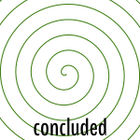
Fano varieties of K3 type
Enrico Fatighenti
type: advanced courses area: MAT/03
period: 13 March – 5 April 2023 hours: 12 + 3
schedule: Mondays 13, 20, 27 March and 3 April h. 16-18 room: Arzelà / Wednesdays 15, 22, 29 March and 5 April h. 11-13 room: Bombelli.
Fano varieties are algebraic varieties whose anti-canonical bundle is ample. A Fano variety is called of K3 type if it contains in a natural way a structure of K3 type, in one of the following senses: Hodge The Hodge structure of the Fano variety contains a sub-Hodge structure of level 2, with a one dimensional H2,0 (there is a sub-Hodge structure which looks like the Hodge structure of a K3 surface, or more generally a hyperk¨ahler manifold. Derived There is an embedding of a category of K3 type inside the bounded derived category of sheaves of the Fano variety. A K3 category is a triangulated category with a Serre functor which acts as a shift by two (which is what happens in the bounded derived category of sheaves on a K3 surface).[...]
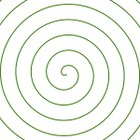
Geometria della teoria delle stringhe
Antonella Grassi
type: advanced courses area: MAT/03
period: TBD hours: min 6 / max 24
Calabi Yau: mini-corso di dottorato sulla geometria della teoria delle stringe, fruibile anche a distanza, con tempi, dettagli e modalità da definire.
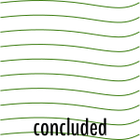
Manifolds, varieties and singular spaces
Julius Shaneson
type: fundamental courses area: MAT/03
period: 24 January – 30 March 2023 hours: ~ 30
schedule: on Tuesdays 9-11 and Thursdays 11-13 room: Seminario I - except Thursday 2 February and Tuesday 14 March: Seminario II
Fiber bundles, some algebraic topology, characteristic classes, cobordism, followed by a very quick survey of classification of compact manifolds
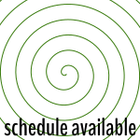
Shapes, symmetries and arrangements
Giovanni Mongardi
type: advanced courses area: MAT/02 MAT/03
schedule:
- June 19 h. 8-11 aula Enriques
- June 22 h. 8-13 aula Cremona
- June 28 h. 8-13 aula Tonelli
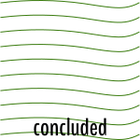
Harmonic function theory and applications to symmetry and stability problems
Giovanni Cupini, Ermanno Lanconelli
type: fundamental courses area: MAT/05
period: 12 April – 19 May 2023 hours: 30
schedule: on Wednesays h. 10-13 and Fridays h. 11-13 / room: Seminario II
I part:
1. Harmonic functions
2. Holomorphic functions and harmonic functions
3. Media formulas
4. Strong maximum principle, Harnack’s inequality, Liouville’s theorems
5. Real analyticity of harmonic functions
6. Superharmonic functions
7. Dirichlet problem: Perron method and variational method
8. Newtonian potentials and boundary problem for the Poisson equation
9. The Kelvin transform and the external Dirichlet problem
10. The generalized Poisson kernel.
II part:
1. The rigidity of the Euclidean balls and spheres with respect to harmonic functions and Newtonian potentials: introduction
2. Kuran’s theorem for volume averages
3. Aharonov, Schiffer and Zalcman’s Theorem for Newtonian potentials
4. Equality between volume means and surface means: a Serrin’s symmetry theorem
5. Weinberger’s method for the Serrin’s problem
6. Fichera’s theorem for surface means: rigidity of the Gaussian surface mean formula
III part:
1. Stability of the volume mean formula for harmonic functions
2. Stability of the surface mean formula for harmonic functions
3. Stability of Aharonov, Schiffer and Zalcman’s Theorem for Euclidean balls and spheres
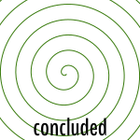
Interpolation and sampling in holomorphic function spaces
Nicola Arcozzi, Nikolaos Chalmoukis
type: advanced courses area: MAT/05
period: 1 March - 19 April 2023 hours: 30
schedule: on Tuesdays and Wednesdays / h. 9-11 / Tuesdays room Arzelà Wednesdays room Enriques ! 14 March room G4 - II floor Geologia via Zamboni 67
The problem of sampling asks to reconstruct a function from its values on a given subset of its domain; while the problem of interpolation askes to find a function with (reasonably) preassigned values on a given set. Such problems are in a sense dual to each other, and have attracted much interest in the course of the past one handred years; in pure mathematics and in engineering (Shannon's sampling is a famous example). A special thrust dates since the beginning of this century, when it was realized that some apparently different topics were in fact intimately connected within more general and powerful theories (Pick interpolation spaces; sampling in de Branges spaces): many old problems were solved, new and challenging ones were posed. The course aims at introducing to the topic from the contemporary point of view, assuming basic prerequisites only.
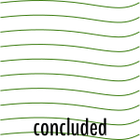
Introduction to dispersive equations and nonlinear problems
Serena Federico
type: fundamental courses area: MAT/05
period: 20 March - 6 April 2023 hours: 15
schedule: 20 March h. 10-12:30, 23 March h. 14-16:30, 27 March h. 10-12:30, 29 March h. 14-16.30, 4 April h. 14-16:30, 6 April h. 10-12:30
rooms: 20, 23, 29 March and 4 April Seminario II / 27 March, 6 April Seminario VIII piano
This course aims to give the necessary tools to study nonlinear initial value problems for dispersive equations in the Euclidean setting. We shall start by describing what dispersive equations are and by giving some fundamental examples. Next, we consider the nonlinear Schrödinger equation and develop the well-posedness theory in this case. For this equation we will analyze some fundamental a priori estimates to get well-posedness results for nonlinear initial value problems. We will prove Strichartz estimates and obtain local well-posedness results for semilinear problems under different regularity assumptions (subcritical and critical regime). Afterwards, we will study smoothing estimates and consider nonlinear problems with derivative nonlinearities. Finally, we shall show how to obtain the results above for the KdV equation.
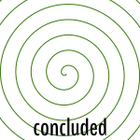
Problems with lack of compactness
Francesca Colasuonno
File [170Kb .pdf]
type: advanced courses area: MAT/05
period: 10 March – 19 May 2023 hours: 16
schedule: March 10, 17 and 31, April 14, 21 and 28, May 5 and 19 h. 9:00 - 11:00
Course both in presence and on-line.
Compactness is a crucial ingredient in variational problems since it guarantees, for instance, that minimizing or Palais-Smale sequences admit convergent subsequences, allowing to find solutions.
Lack of compactness can be caused by different reasons and may require different tools to be overcome. In this course, through the study of some semilinear elliptic problems, we will present some important tools such as the Principle of Symmetric Criticality by Palais and the Concentration-Compactness Principle by Lions.
In the second part of the course, we will study the following celebrated problems where the lack of compactness appears even locally: the existence of extremal functions for the Sobolev inequalities in R^N, the Brezis-Nirenberg problem, and the supercritical Lin-Ni-Takagi problem for stationary solutions of the Keller-Segel model for chemotaxis.
See attached File for complete program.
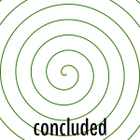
Qualitative properties of solutions of p-Laplace equations
Stefano Biagi, Eugenio Vecchi
type: advanced courses area: MAT/05
period: 7 - 31 March hours: 24
schedule: on March 7, 9, 14, 17, 21, 24, 28, 31 h. 2p.m - 5p.m. room: Seminario II
The course aims at providing an overview on classical and more recent results concerning qualitative properties like symmetry and monotonicity of positive solutions of both semilinear and quasilinear PDEs. The importance of knowing a priori certain qualitative properties may result in clear simplifications when looking for the existence of solutions to nonlinear PDEs. The most famous technique used to prove such results is the moving plane method introduced by Aleksandrov and Serrin. The main analytical tools required to make this method efficient are weak and strong maximum (or comparison) principles, maximum (or comparison) principles in small domains and Hopf Lemma. Starting from the seminal paper of Gidas, Ni and Nirenberg, we will present several variants of their results, including the model case of the p-Laplacian, cooperative elliptic systems and possibly the case of singular solutions.
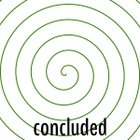
Viscosity solutions of second order elliptic equations and applications
Fausto Ferrari, Sandro Salsa (PoliMi)
type: advanced courses area: MAT/05
period: 18 January – 22 February 2023 hours: 24 (12 + 12)
Fausto Ferrari: 18/01 h 9-11 room Tonelli, 19/01 h 9-11 room Seminario VIII piano, 25/01 h 14-16 room Tonelli, 26/01 h 9-11 room Vitali, 30/01 h 9-11 room Vitali and 31/01 h 9-11 room Arzelà
Sandro Salsa: 31/01 h. 15-17 room Arzelà, 1/02 9-11 and 14-16 room Vitali, 21/02 h 15:30-17:30 Seminario II, 22/02 9-11 room Enriques 14:30-16:30 room Arzelà.
Basic part:
Notations and basic definitions about viscosity theory of second order PDEs
Comparison principles and uniqueness;
Perron's method;
Alexandrov-Bakelman-Pucci maximum principle.
Applications:
I) Homogeneous Free boundary problems;
II) Main tools;
III) Regularity of Lipschitz free boundary in two phase free boundary problems
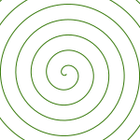
McKean-Vlasov models for systems of spiking neurons
Eva Löcherbach (Paris1 Panthéon-Sorbonne, France)
type: advanced courses area: MAT/06
period: May 2023 hours: 8-10
We will introduce two basic processes describing systems of interacting and spiking neurons. In both processes, neurons spike at a rate depending on their membrane potential value. When spiking, they have a direct influence on their post-synaptic partners, namely, a fixed value, called "synaptic weight", is added to the potential of the postsynaptic neurons. In between successive spikes, due to some leakage effects, the membrane potential process follows a deterministic flow. In the first class of processes, the (non-linear) Hawkes processes, the membrane potential of the spiking neuron remains unchanged upon spiking, while in the second class of process, it goes back to a resting value inducing a discontinuity that we will refer to as "big jumps".
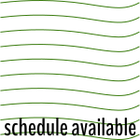
A guided journey through classical Quantum Mechanics
Alessandro Della Corte (Università degli Studi di Camerino)
type: fundamental courses area: MAT/07
period: 27 June – 7 July 2023 hours: 14
schedule: June 27 h. 15-17, June 28 and 29, July 6 and 7 h. 14-17 room: Seminario II
The course has a twofold purpose. First of all, it is aimed at introducing the main concepts of classical Quantum Mechanics, with a special focus on its mathematical foundations and on the logical connections between the mathematical tools and the experimental predictions that they allow. Moreover, the course selects a sample of more recent results which are both fundamental from the perspective of theoretical physics and interesting in themselves from a purely mathematical point of view: the Kochen-Specker theorem (1967), the no-cloning theorem (1982), J.Conway’s strong Free will theorem (2009) and the results by J.Fröhlich and B.Schubnel on the role of dynamical attractors in the preparation of states in Quantum Mechanics (2016)
UNIBO Referent: Marco Lenci
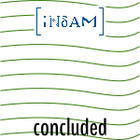
Mathematics of quantum spin systems
Angelo Lucia (Universidad Complutense de Madrid - Spain)
type: fundamental courses area: MAT/07
period: 21 November – 21 December 2022 hours: 16
schedule: on Mondays 2 to 4 p.m. and Wednesdays 4 to 6 p.m. from November 21st to December 21st / room: on Mondays at Seminario II and Wednesdays at Aula Arzelà
Meeting on Teams - Mondays - Meeting on Teams - Wednesdays
Quantum spin systems constitute a very rich and complex landscape in which many interesting mathematical problems arise. Traditionally studied as a model for condensed matter physics, in the last two decades they have gained prominence also in the field of quantum information and computation, as they describe many of the proposed "quantum hardware" implementations. The aim of the course is to give an introduction to the mathematical description of quantum spin systems on a lattice, present some of the more common techniques used to study them, and introduce the students to some of the active research topics. Since many of the tools introduced rely heavily on the locality properties of the models, some of the results also yield non trivial statements for classical statistical mechanics models, thus allowing the possibility of creating connections in that direction.
Funded by INdAM "Programma Professori Visitatori 2023"
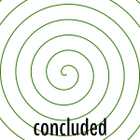
A primer on Isogeometric Analysis with special focus on domain parametrization and linear algebra approaches
Carolina Beccari, Davide Palitta
type: advanced courses area: MAT/08
period: 10 February - 20 April 2023 hours: 20
schedule: 10 Feb h 10:00, 16 Feb h 13:30, 3 Mar h 11:00, 9 Mar h 15:30, 30 Mar h 16:00, 6 Apr h 16:00, 13 Apr h 16:00 and 20 Apr h 16:00 room: Seminario I
Isogeometric Analysis (IGA) was introduced in 2005 by Hughes et al. [1] as a method for the solution of problems governed by partial differential equations. The basic concept of the IGA approach is to use the same functions to describe the geometry of the physical domain and to approximate the numerical solution of a differential problem posed on that domain.
These functions are those typically adopted in Computer-Aided Design (CAD) to provide a mathematical model for the physical domain, i.e. higher-order B-splines or NURBS [3]. An immediate advantage of the IGA paradigm is that the computational domain exactly reproduces the CAD description of the physical domain, regardless of the mesh refinement level, thus simplifying the expensive operations of mesh generation and refinement required by traditional Finite Element Analysis (FEA) [2]. Alongside this, numerical testing in different situations has undoubtedly shown that IGA produces a substantial increase in the accuracy per degree of freedom compared to standard finite elements. To date, there is a wide range of problems in which IGA has successfully been used such as structural mechanics, turbulent flow and fluid-structure interaction, dynamics, wave propagation, and advanced biomechanics problems.
The main objective of the course is to give participants an idea of how to start with IGA, along with an overview of its potential and the basic tools to exploit it. The first part of the course will cover the basic concepts of IGA, with a special focus on higher-order basis functions and their use for the parametrization of the physical domain. The second part will focus on the linear algebra tools that allow a computationally efficient solution of the resulting discrete operator. [...]
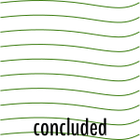
Basic elements of Parameter identification of Mathematical Models
Germana Landi, Fabiana Zama
type: fundamental courses area: MAT/08
period: 1 February – 22 February 2023 hours: 15
schedule: 1, 8, 15 and 22 February / h. 10:00 - 12:30 room: Seminario I
Parameter identification (PI) is one of the most important aspects in the definition and application of mathematical models. Aim of this course is to give the basic notions of PI for several models relevant in the applied sciences, meanwhile constituting a general framework applicable to more general contexts.
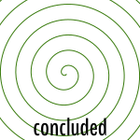
First-order and stochastic optimization methods for supervised machine learning
Stefania Bellavia UNIFI
type: advanced courses area: MAT/08
period: 14-28 April 2023 hours: 10
schedule: 14/04 14:00-16:00, 21/04 10:30-12:30 and 14:00-16:00, 28/04 10:30-12:30 and 14:00-16:00 room: Seminario II
We present and discuss gradient-based optimization methods for solving minimization problems arising in machine learning applications. The analysed methods employ first-order models for the objective function and stochastic gradient approximations. We will focus on the stochastic gradient and some of its widely used variants. The application of such methods to the training of classifiers and neural networks will be considered and numerical results will be also shown.
UNIBO Referent: Valeria Simoncini
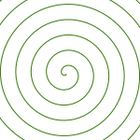
Optimization methods for management science
Marco A. Boschetti
type: advanced courses area: SECS-06
period: July – October 2023 hours: 16 - 20
Management Science deals with decision making and problem solving in organizations and makes use of a wide range of mathematical methods. Among them Mathematical Programming (MP) and Combinatorial Optimization (CO) provide many effective tools for solving real-world applications and have an extensive literature.
The course starts with an overview of the main MP and CO approaches used in Management Science. Then, it focuses on some specific techniques considering dynamic programming, branch and bound, cutting plane, and decomposition methods. It also shows how some of these methods can be combined for developing exact and heuristic algorithms for solving NP-hard problems (e.g., Lagrangian relaxation can be combined with column generation for developing effective dual ascent algorithms).
The course also proposes some ideas for some new research directions (e.g., the possible use of decomposition methods for developing fully decentralized optimization algorithms).
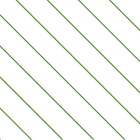
Advanced methods for mathematical image analysis
PhD Winter School 2023
type: schools, seminars and other courses
dates: 18 - 25 January 2023
The total number of hours will be 36, split over two consecutive weeks. A number of 4 ETCS will be assigned.
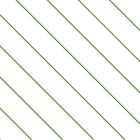
REPRESENTATION THEORY OF QUIVERS AND HOMOLOGICAL ALGEBRA
Roberto Pagaria
type: schools, seminars and other courses
BIP UNIBO (Blended Intensive Programs) https://www.erasmusplus.it/istruzione_superiore/mobilita/blended-intensive-programmes/
